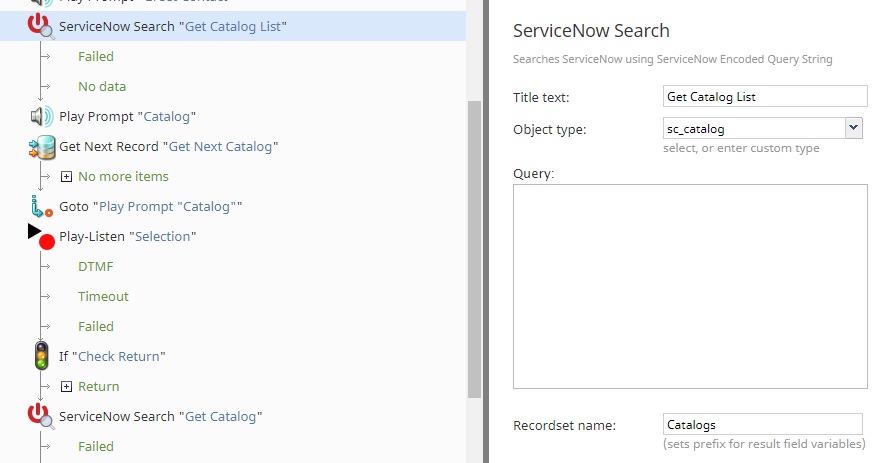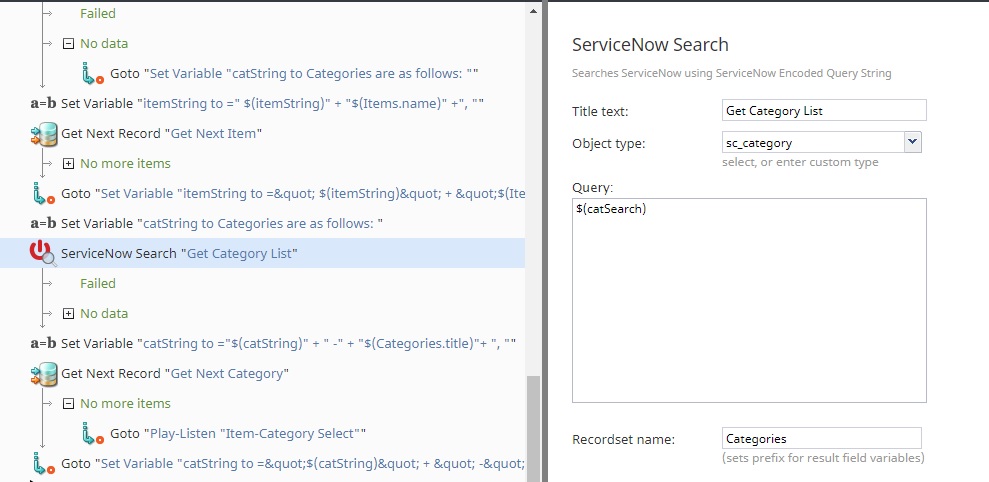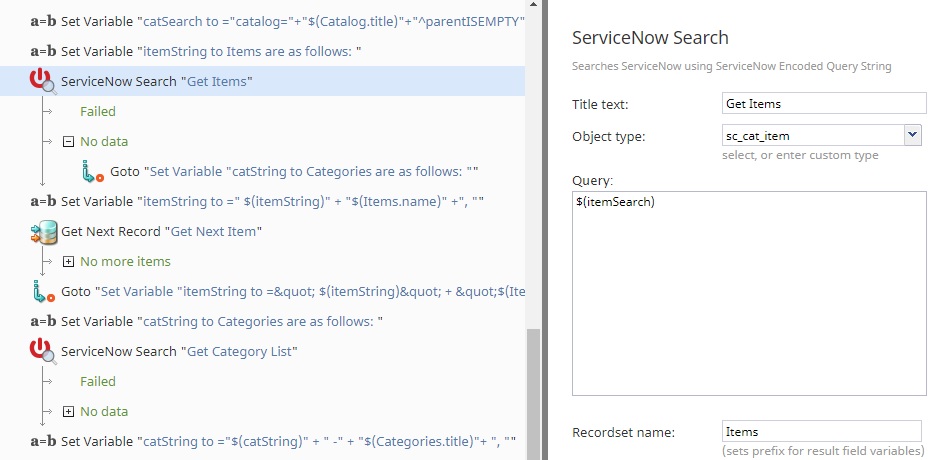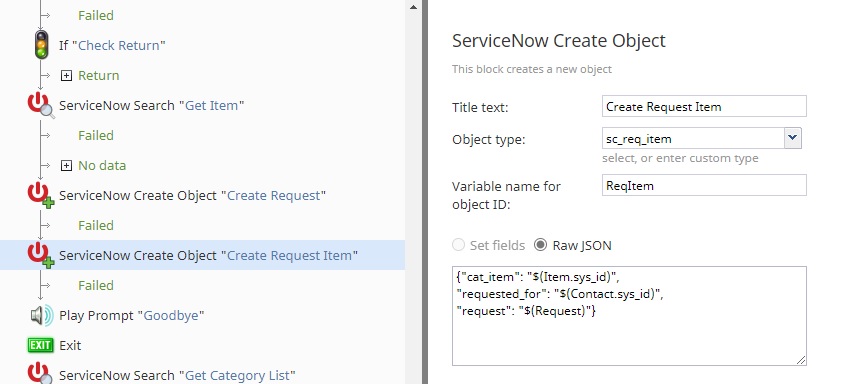Self-Service Catalog Request
Bright Pattern scenario blocks can be used to automate request creation over voice and SMS. This provides flexibility to users in ways to request items from the ServiceNow Self-Service catalog. To offer selections to users in a scenario, do the following:
- Identify the user contact record.
- Navigate user selection of:
- Catalog
- Category
- Item
- Create the request.
Downloadable Examples
Click the following links to download a chat or voice version of this scenario example.
Media:App_Self_Service_Catalog_Request_-_Chat.zip
Media:App_Self_Service_Catalog_Request_-_Voice.zip
For instructions on how to import a scenario file into your contact center, see the Contact Center Administrator Guide, section Scenarios Overview > How to Export and Import Scenarios.
For general information about scenarios, refer to section Scenario Builder Overview.
Procedure
1. Identify the Contact Record
The first step is to identify the user contact record. For instructions, see section Phone Contact Search.
To locate an item through various catalogs and categories, dynamic searching is used for navigating the Self Service catalog. For in-depth information on dynamic searching, see section Dynamic Searching.
Catalog
A ServiceNow Search scenario block is used to get a list of the Catalogs available to the user. The Play Prompt scenario block reads the name of each catalog until the end of the recordset Catalogs is reached. A Play-Listen scenario block is used to obtain the user selection, which is then retrieved by the ServiceNow Search block.
Category
Categories for the catalog selected are retrieved by a ServiceNow Search scenario block. It will search the table sc_category for the specified catalog and parent.
Item
Items for the catalog are retrieved by a ServiceNow Search scenario block. It will search the sc_cat_item table for the matching catalog and category name and return a list of items.
3. Create the Request
A ServiceNow Create Object scenario block is used to create both the request and the request item. First, the request is made to the sc_request table where the requested_for field is set to the sys_id of the user. Then, the request item is created by using another ServiceNow Create Object scenario block that includes the sys_id for the item, the user, and the previously created request ticket.




